My Autistic Brother And I
It's always been assumed that one day Casey would live with me. Why the hell didn't any of us bother asking him?

Casey works at Wendy’s every Monday, Tuesday, Thursday, and Friday. On Saturday, he sleeps in and on Sunday, he goes to Petland to play with the puppies that are for sale. On Wednesdays, he goes to church. The timelines of those days are, of course, equally important as the days themselves. Casey leaves the house at 5 p.m. on Wednesdays so he can have a footlong sandwich at Subway for dinner. Then he walks to church and greets everyone before the service starts at 6. At 8, someone in our family picks him up, runs him by the gas station to purchase two 20-ounce Cokes for the following day, and only then does he come home to relay the message of the week to my mom and dad.
If you give to God, he will multiply your wealth .
Casey is standing in the living room of our doublewide in a maroon polo shirt, arms by his side, as he announces this Wednesday’s creed. I raise my eyebrows and look over at my dad who only says, “That’s great, buddy.” Casey heads for his room. When the door closes, I turn to Dad and say, sarcastically, “Well, that’s one lesson that you can take from church.” Dad turns away and goes to grab a Bud Light from the bottom of the fridge, signaling that we are not going to be talking about the pros and cons of the prosperity gospel tonight.
Church is massively important to Casey, which is why I don’t make any more jokes about the lesson. Plus, for 50-ish weeks of the year, I live in New York, so I am very much a visitor in this home now. This most recent visit, I was back to help out while my mom dealt with a medical emergency—less than perfect circumstances. One of the biggest hurdles we encountered while facing my mom needing surprise surgery was making sure we maintain Casey’s schedule. My parents insist it’s what Casey needs.
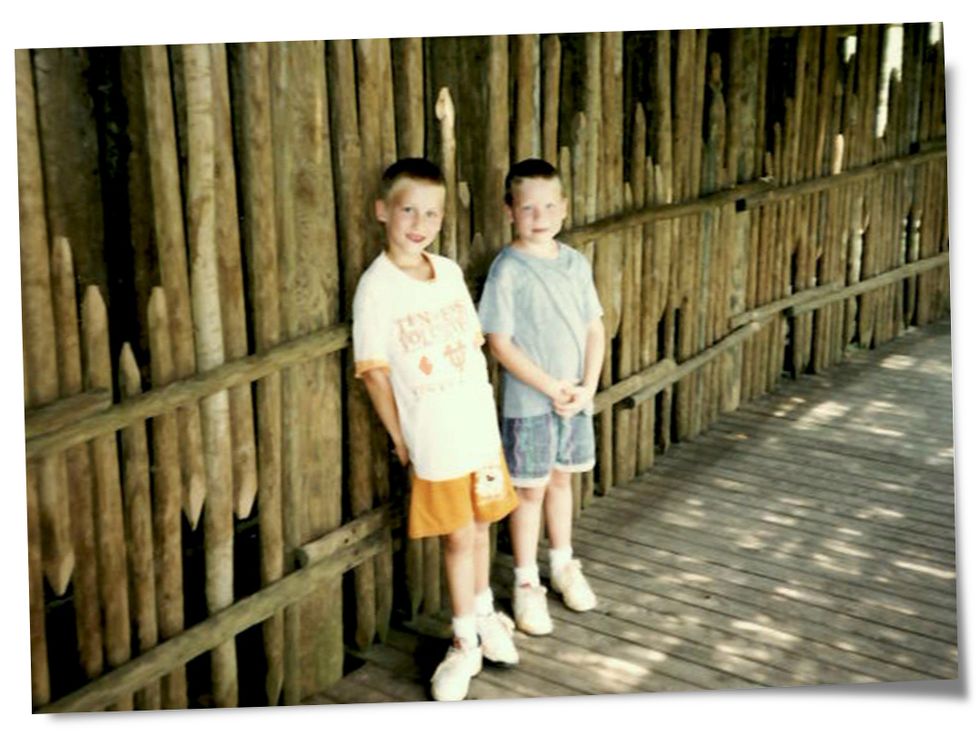
Being away from Casey after growing up with him for almost 20 years is difficult. I worry about him, and sometimes, the worry clouds the way I see him. The way I know him to be. Eleven months his junior, I never really considered Casey “different” when we were growing up. He had a different personality, sure. Different quirks. But, to me, he was always capable. Malleable in a way that I don’t think enough people gave him credit for. We hid shit from our parents like your everyday pair of brothers. We have jokes that only we understand.
There were some people along the way who made remarks about him—kids at school, or some Karen in Wal-Mart who would "get nervous" that Casey liked to just walk around the store and talk to customers. People who didn't have the knowledge to understand. Overall though, Casey was just... Casey.
But when I left home, strangely, so did that confidence in his abilities. Over the years, in my mind he's become “more autistic” and less adept. I, like a lot of people, have watered him down, letting the title of "autism" do more work than the core of who Casey is. Going back to help with the family felt like an intimidating first look at a future I’d agreed to as a child: one day, you’ll be responsible for taking care of Casey . As a kid, that promise is very sweet, but as I wade further into my thirties, it’s becoming more real. Casey is great, but I want my own life. How do you say that to someone? Can you?

Before I traveled down to Tennessee, I was watching this show on Amazon called As We See It , about three autistic adults living independently with a touch of assistance from a live-in helper (played by Sosie Bacon). They have jobs and social lives, or, well… at least they’re working on the social life part. Better yet, the three autistic characters are played by three actors who are autistic themselves. I watched it and made a note in my phone to show Casey the trailer when I got back home. Maybe he would be inspired.
When I pulled it up on the TV, I watched him lean over the recliner in our family’s living room. He was taken in, completely. He asked me about the actors and the show. Told me it was cool that one of the characters worked at Arby’s like he used to. (Important Note: Casey was Employee of the Month when he worked at Arby’s. Twice.) But by the time I had queued up the trailer, I had already been reminded: Casey doesn't need to be "inspired." I'd been home for hardly any time at all but, for me, it never takes long to remember that Casey is fine. He’s always been babied, but Casey is far from needy. The representation made him happy, but Casey didn’t need to be coached into being one of those characters. 50 weeks away, a few days at home, it occurs to me, as it always does, that Casey is a character all on his own.
He has hurdles that we will have to eventually address. He doesn't drive, though he's taken lessons in the past. He's never lived on his own, but he's familiar with buying groceries and paying bills. Sometimes, I wonder if we've done more damage to Casey by suggesting he can't do things instead of pushing him. Enough to realize it was time to have a conversation with him about what life he wants , as opposed to the plan that we've chosen for him.
I don't think this perception shift is rare. Rather, I think a lot of us who are close to neurodivergent persons do the same. That Thursday, I put my own skepticism to the test.
A few years back, when I came out as gay to my conservative parents, they asked me not to tell Casey. They suggested that he wouldn’t understand it. Casey has met my partner under the pretense that we were good friends, but I never pushed it further. On the way home from work, at the gas station, I looked at Casey and said, “You know Andrew who lives with me? Do you know what he means to me?”
“I do,” Casey said, plainly.
“No. Do you know what he means to me. That he’s a very important person in my life?”
Casey, unbothered, said, “Yes.”
“But like,” I was stumbling far more than Casey. “Like, he’s my… boyfriend.”
“Oh, I know,” Casey said. “Did you know his birthday is October 16? And that when we first met, it was in a CVS? Isn’t that funny? Oh, and did you want me to get you a Diet Coke when I go into the gas station?”
Of every coming out in my life, that one was by far the easiest. Casey went into the gas station and bought me a Diet Coke, and we went home.
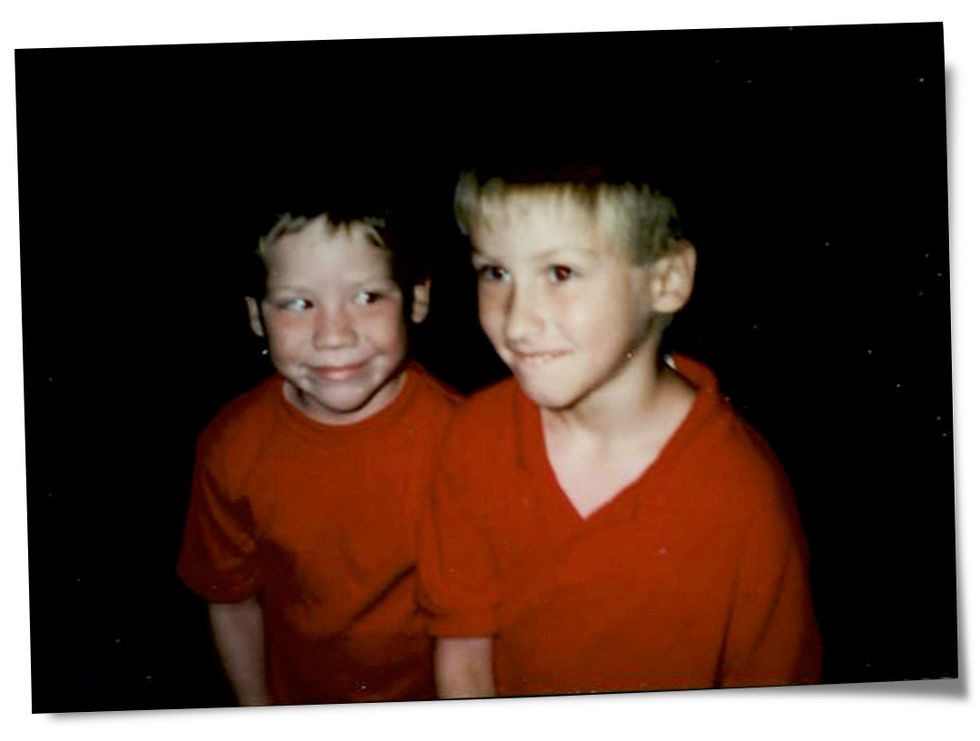
On Friday, I picked Casey up from his final Wendy’s shift of the week. I decided to broach the next piece of the conversation I wanted to have with him. Years and years ago, my parents decided that Casey would move in with me after they were gone. I agreed, wanting to be as helpful as possible. Then we never discussed it again, and we surely didn’t discuss it with Casey. Being home for my mom’s surgery really highlighted how real that promise was and that, no matter the path forward, we needed to discuss the future.
“Casey, one day, when we’re older, would you want to move in with me and Andrew?” I asked.
“Well, I don’t think I would want to do that,” he said, stumbling a bit as if he were looking for a more apologetic way to say it. “I am not really interested in living with you.”
“Oh, thank God.”
The words fell out of my mouth. He looked at me a bit incredulously, as if he couldn’t believe I said it so bluntly. As equipped as I believe Casey is, people rarely, if ever, talk to Casey that frankly. Sometimes, people avoid him entirely, like he's fragile china. Once the shock of my honesty wore off, he laughed. Casey is resilient, but he rarely gets to display it as people make choices on his behalf regularly. There are likely a whole host of reasons why, but the result is the same, with much of society infantilizing the neurodivergent.
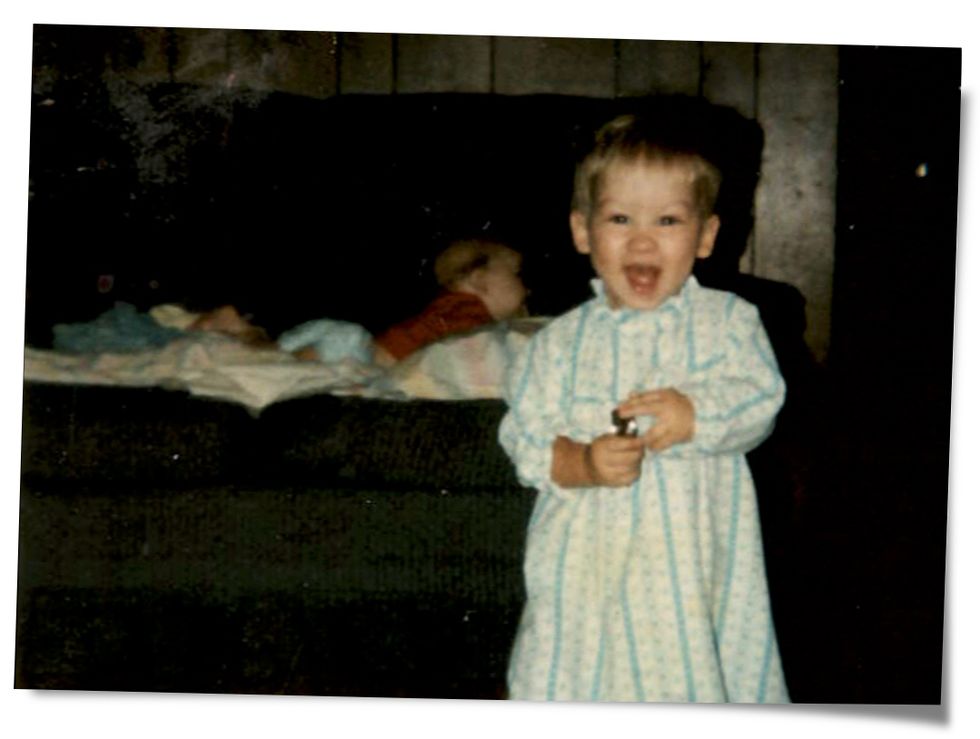
Casey is not my ward, something that he and I both love. He's my brother. He’s weird, don’t get me wrong. He commandeers my Spotify and has fucked up my algorithm beyond repair. My most-listened to artists are Rosemary Clooney and Clint Black and I will never forgive him for that. He stays up too late for my liking, and he texts me GIFs almost hourly, despite me asking that he doesn’t during work hours. He is immensely stubborn, watches QVC for hours at a time, and purposefully turns on the home security system when I'm outside just to frustrate me.
But I’m also weird. I have OCD and when I’m alone, I touch the corners of tables four times exactly. I watch Gilmore Girls every night before bed, and I eat leftover hot sauce out of ramekins with my fingers. People still treat me with respect and autonomy, so what exactly is my excuse when it comes to Casey?
“So, are you saying you want to live with Mom and Dad instead?” I asked. He said, “No, I don’t want to live with them either. I want to live by myself.”
“Yeah, trust me. I get that,” I said. “Let’s make it happen then.” And then he listed off places he might like to live. Sevierville. Or maybe Strawberry Plains. “Did you know there’s a Cracker Barrel on Strawberry Plains, Justin?” The planning had clearly started a while back.
I told my parents about the conversation I had with Casey and his living situation. My dad let out of a sigh and told me that he already knew. "I think this is something he's done a lot of thinking about," he said. And I leaned forward and squinted a little bit— seriously ? "Well, then we should start having conversations with him about money. And life skills. We should make this happen." So we're working on it. As Casey's friend and brother, I'm going to make sure we keep pushing it forward.
I’ve been responding to Casey’s text GIFs more often since I got back. I’ve started calling him on Wednesdays to ask what the sermon was, partly because we really should try and keep that prosperity gospel talk to a minimum. We trade stories about our week, and now, once he’s asked about my life, he also asks about Andrew. The calls don’t last long because Casey kind of hates the phone. But I want him to know the conversation, if he wants to have it, will always be there. Not because he needs it, but because I want it.


@media(max-width: 73.75rem){.css-1ktbcds:before{margin-right:0.4375rem;color:#FF3A30;content:'_';display:inline-block;}}@media(min-width: 64rem){.css-1ktbcds:before{margin-right:0.5625rem;color:#FF3A30;content:'_';display:inline-block;}} Lifestyle

The 6 Best Desks Made for Gaming

Amazon’s Best Memorial Day Sales Are Here Early

4 Portable Monitors That Are Easy to Take Anywhere

The Best Apple Deals Happening for Memorial Day

The Best Damn Camping Accessory on the Planet

The 4 Best Bike Locks That Won’t Fail You

Which Apple Watch Should You Buy?

6 Robot Vacuums That Do All the Work for You

The 7 Best Soundbars for Upgrading Your TV
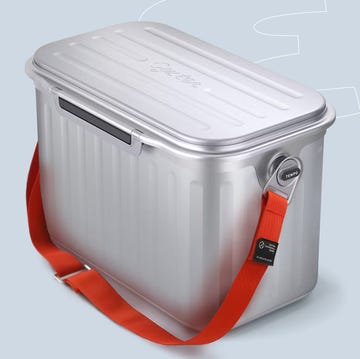
75 Gifts Your Husband Will Absolutely Love

Wild Theory Offers Reason We Haven’t Found Aliens
Forgotten password
Please enter the email address that you use to login to TeenInk.com, and we'll email you instructions to reset your password.
- Poetry All Poetry Free Verse Song Lyrics Sonnet Haiku Limerick Ballad
- Fiction All Fiction Action-Adventure Fan Fiction Historical Fiction Realistic Fiction Romance Sci-fi/Fantasy Scripts & Plays Thriller/Mystery All Novels Action-Adventure Fan Fiction Historical Fiction Realistic Fiction Romance Sci-fi/Fantasy Thriller/Mystery Other
- Nonfiction All Nonfiction Bullying Books Academic Author Interviews Celebrity interviews College Articles College Essays Educator of the Year Heroes Interviews Memoir Personal Experience Sports Travel & Culture All Opinions Bullying Current Events / Politics Discrimination Drugs / Alcohol / Smoking Entertainment / Celebrities Environment Love / Relationships Movies / Music / TV Pop Culture / Trends School / College Social Issues / Civics Spirituality / Religion Sports / Hobbies All Hot Topics Bullying Community Service Environment Health Letters to the Editor Pride & Prejudice What Matters
- Reviews All Reviews Hot New Books Book Reviews Music Reviews Movie Reviews TV Show Reviews Video Game Reviews Summer Program Reviews College Reviews
- Art/Photo Art Photo Videos
- Summer Guide Program Links Program Reviews
- College Guide College Links College Reviews College Essays College Articles
Summer Guide
- College Guide
- Song Lyrics
All Fiction
- Action-Adventure
- Fan Fiction
- Historical Fiction
- Realistic Fiction
- Sci-fi/Fantasy
- Scripts & Plays
- Thriller/Mystery
All Nonfiction
- Author Interviews
- Celebrity interviews
- College Articles
- College Essays
- Educator of the Year
- Personal Experience
- Travel & Culture
All Opinions
- Current Events / Politics
- Discrimination
- Drugs / Alcohol / Smoking
- Entertainment / Celebrities
- Environment
- Love / Relationships
- Movies / Music / TV
- Pop Culture / Trends
- School / College
- Social Issues / Civics
- Spirituality / Religion
- Sports / Hobbies
All Hot Topics
- Community Service
- Letters to the Editor
- Pride & Prejudice
- What Matters
All Reviews
- Hot New Books
- Book Reviews
- Music Reviews
- Movie Reviews
- TV Show Reviews
- Video Game Reviews
Summer Program Reviews
- College Reviews
- Writers Workshop
- Regular Forums
- Program Links
- Program Reviews
- College Links
What I Learned from my Autistic Brother
When I was young, I knew my brother was different. It didn’t seem important to me until some of my friends asked, “What’s wrong with him?” At first I didn’t understand what they meant because I didn’t think there was something “wrong” with him. I asked my parents, and they told me that my brother had autism and cerebral palsy. When I went to kindergarten, my brother had already been at the same school for several years in the special education program. When he saw me in the halls, he always wanted to hug me, and I was incredibly embarrassed. I didn’t want to feel this way because I loved my brother, but I thought others would laugh at me for displaying any connection. If I saw him, I would try to hide behind friends, or walk down a different hallway. I felt ashamed of my behavior, but I couldn’t help it. Sometimes I wished I had a normal brother, but I never told anyone. I felt regret when I found myself thinking this way. Eventually, we parted ways when I went to middle school. We weren’t enrolled in the same facility again until my junior year at high school. Since the school didn’t want to pay for a special education bus to bring Gabriel to school, I was responsible to get him on and off the bus and bring him to his classroom in the morning. My past selfish thoughts resurfaced when I had to chaperone him onto the bus. My first thoughts were “I don’t want to do this; I’m not responsible for him.” But reluctantly, I said yes because I don’t like arguing with my parents. However, after the first couple of bus rides, I realized I enjoyed taking Gabriel off the bus and bringing him to his class. It was a game for both of us. I spent the first six weeks teaching him how to simply get to his classroom; telling him which direction we were heading and when we should make a left or right turn. Later, I asked him directional questions and he would answer them. Sometimes he would get them wrong, but I would gently correct him and tell him the proper direction. By the third month he had two routes memorized. I would still get him off the bus to make sure he was taking one of the two correct routes. Later in the year, I didn’t have to watch him anymore, because I knew that he knew his way. Eventually I started finding my own way. I saw myself emulating the same patterns of persistence that my brother portrayed in the hallway. With my school work, I’d ask myself more questions and work harder in order to achieve the results I wanted. These experiences made me become more compassionate and encompassing of people who are different than I am. I can see myself taking on more challenges in college. Now I am less fearful about trying something new. I thank my brother Gabriel for teaching me these lessons.
Similar Articles
- 16 comments
JOIN THE DISCUSSION
This article has 1 comment.
Favorite Quote: Everyone is a genius, but if you judge a fish by its ability to climb a tree it will live its whole life believing it is stupid. - Albert Einstein
- Subscribe to Teen Ink magazine
- Submit to Teen Ink
- Find A College
- Find a Summer Program
Share this on
Send to a friend.
Thank you for sharing this page with a friend!
Tell my friends
Choose what to email.
Which of your works would you like to tell your friends about? (These links will automatically appear in your email.)
Send your email
Delete my account, we hate to see you go please note as per our terms and conditions, you agreed that all materials submitted become the property of teen ink. going forward, your work will remain on teenink.com submitted “by anonymous.”, delete this, change anonymous status, send us site feedback.
If you have a suggestion about this website or are experiencing a problem with it, or if you need to report abuse on the site, please let us know. We try to make TeenInk.com the best site it can be, and we take your feedback very seriously. Please note that while we value your input, we cannot respond to every message. Also, if you have a comment about a particular piece of work on this website, please go to the page where that work is displayed and post a comment on it. Thank you!
Pardon Our Dust
Teen Ink is currently undergoing repairs to our image server. In addition to being unable to display images, we cannot currently accept image submissions. All other parts of the website are functioning normally. Please check back to submit your art and photography and to enjoy work from teen artists around the world!
- Campus News
- Delaware News
- Theater and Dance
- Letter to the Editor
- Letter From the Editor
- Conference USA
- Women’s Basketball
- Men’s Basketball
- Pop Culture and Entertainment
- Campus Life
- Creative Content
- Comics/Cartoons

BY LAURA MATUSHESKI Senior Reporter
He is 25 years old. He cannot talk. He makes mumbling sounds and points to get your attention. He cannot hold anything resembling a normal conversation. He lives by routine and repeats the same words and phrases over and over again. He hates loud noises and will plug his ears with his index fingers. His hands look like a telephone when he does it…
Whenever I tell someone new that I have a brother, they are so shocked to find out that part of me. Being a twin, people tend to think that I don’t have any other siblings.
“Yeah, but he has autism,” I usually say, and then I start to list off a few symptoms of his condition.
The person on the other end of the conversation then says something along the lines of: “Wow, I’m so sorry! You must be an angel for taking care of him!”
No, I’m not. I’m just his sister. I don’t want anyone to apologize to me for my brother’s autism. I will not apologize for it, either. But I do want to talk about it.
Autism can be defined as a developmental disability which affects language and communication, sensory processing and motor skills, cognition and social interaction. For individuals with autism, the brain develops differently right from birth and affects various processes and certain social behaviors. This may seem like a mouthful, but simply put, autism is just another way of seeing the world.
If you couldn’t already tell from the people updating their profile pictures and cover photos on Facebook with the “Light It Up Blue” Autism Speaks filter, April is World Autism Awareness Month. National Autism Awareness Day is on April 2 every year, and it’s also a day in which my news feed is completely filled with different pictures of blue puzzle pieces: a symbol representing the mystery of the “puzzling” condition.
Though I love to see the support surrounding autism awareness, I can’t help but wonder how many of the people sharing these images actually know what they’re posting about. Most people are aware of what autism is, but not many people understand all the nuances of autism or accept its “ugly” side (you know, the parts of autism that aren’t shown on TV).
I should disclaim that as a neurotypical person, I cannot speak on behalf of the autism community (not even for my brother, who is nonvocal).
“If you’ve met one person with autism, you’ve met one person with autism,” autistic professor Dr. Stephen Shore famously says.
There is great diversity within the spectrum, and in no way will I ever discount that fact.
However, I feel that I’ve also been taught perspective that goes beyond the classroom, and that is part of why I want to share my perspective.
The other part is, well, because I think I have had a unique life.
I grew up with an older brother four years older than me whose needs were always more important than mine. Whining about staying up later or wanting the newest phone seems completely insignificant when your sibling is struggling with basic life skills. In a way, my twin sister and I have become his “second” parents for as long as I can remember. Since he cannot communicate his needs properly, I have to pay extra attention to his physical cues. When I don’t understand him, he gets frustrated. And so do I.
You deal with a lot of emotions and anxieties that never cross the minds of other kids your age. My thoughts became consumed with the looks strangers would give when my brother would act out in public. Why are those kids staring at my brother? What are they saying? Please stop flapping your arms. Even though my brother cannot understand what these things meant, I always felt that it was my responsibility to make him look as “normal” as humanly possible.
Your perception of yourself changes. Sometimes when a sibling has a disability, you feel pressure to compensate for it. I wanted to be the best at everything and go above and beyond in every minute detail of my life. I wanted to be the smartest student my parents would beam over (to clarify, this was self-provoked and not from my parents). I selfishly considered myself the only possible ‘proof’ that my parents were good parents and could raise ‘good’ children. Who else did they have? Who will take care of them someday?
I realize now that I could not have been more wrong.
People fear what they do not understand. Understanding is the key to acceptance; to understand that everyone is different and some people need extra help, extra time, extra attention and a little extra love. Understand that a disability does not give you the right to ever feel you are worthier than someone else. Autism exposes some tough, scary feelings. It forces you to reevaluate and abandon the life you may have envisioned and begin a new, untraveled, unplanned path. You don’t know where this path ends, but you just grab your family’s hands and head on down.
My parents are my brother’s biggest advocates. My dad has always defended my brother when he was treated unfairly and would speak up for him when he didn’t have the words to express it himself. My mom works for Autism Delaware, a non profit organization that seeks to help families and individuals affected by autism through resources and support. With my parents’ love and dedication, my brother and I have grown into young adults with the utmost respect and gratitude for one another.
Through Autism Delaware, my brother was able to receive the support that he needed to start his life after graduation. Last year, he got his first paying job through their vocational program, Productive Opportunities for Work & Recreation (POW&R).
Even during the pandemic that has plagued everyone of their freedom, my brother finds solace in drawing his renditions of billboards and signs he sees, listening to The Beatles and taking long walks in the park with my family. I couldn’t be more proud of how far he has come in life, and his happiness has helped me be grateful for all the little things I have, including him.
To be the sister of a person with autism means that every day is crazy and you never know what to expect. It’s stressful. It’s chaotic. Acceptance of my brother’s autism took longer than I wanted it to. You hate your sibling; you love your sibling. It took me sitting down and writing this to realize that my language surrounding my brother’s autism was wrong. Yes, his life is impacted by autism. No, he is not defined by this. My brother is more than a list of symptoms or “quirks.” People need to understand that asking about someone’s disability will not help you understand them, it just makes it seem like that is all you see them for.
He is 25 years old. He is brilliant. He is priceless. His brain works in ways mine never will. He is a human, not a puzzle piece. My brother, Robert, has autism.
GET THE LATEST CAMPUS NEWS
SIGN UP FOR OUR NEWSLETTER
THANKS FOR SUBSCRIBING!
Dear Laura, Your article is so beautifully written and shows how much you love your brother. My 20 year old son with severe autism has no siblings and though he is like having 5 children in one, at times I wish he did. Your brother is so lucky to have you. Thank you so much for sharing your story. Nea
LEAVE A REPLY Cancel reply
Save my name, email, and website in this browser for the next time I comment.
Check out our other content
Broadway’s 2023-24 year in review, as graduate students attempt to make ends meet, stipends set to increase, opinion: being black, nonbinary and a gamer is exhausting, poem: my cat is a teenager, e-52’s journey “into the woods”, letter from the executive editor.
Check out other tags:
Most Popular Articles
Letter from the editor-in-chief, maintaining friendships post-graduation.
The University of Delaware's Independent Student Newspaper
- Arts and Culture
- About The Review
- Advertise With Us
© All Rights Reserved, Newspaper Theme.
- Type 2 Diabetes
- Heart Disease
- Digestive Health
- Multiple Sclerosis
- Diet & Nutrition
- Supplements
- Health Insurance
- Public Health
- Patient Rights
- Caregivers & Loved Ones
- End of Life Concerns
- Health News
- Thyroid Test Analyzer
- Doctor Discussion Guides
- Hemoglobin A1c Test Analyzer
- Lipid Test Analyzer
- Complete Blood Count (CBC) Analyzer
- What to Buy
- Editorial Process
- Meet Our Medical Expert Board
What It's Like Being the Sibling of an Autistic Child
Parents Can Make It Easier for Siblings of an Autistic Child
Siblings of children with disabilities have unique challenges—and siblings of autistic kids are no exception. But as with virtually everything related to autism , each situation is unique.
For some siblings, life with an autistic sibling can be overwhelmingly difficult. For others, it has its ups and downs. There are even some children who see their sibling's autism as a plus. Despite these differences, however, there are some shared experiences and challenges.
Top Challenges Faced by Siblings
Whether the sibling of an autistic child is rich or poor, mellow or anxious, there are certain shared challenges.
Ableist Embarrassment
This is one of the most difficult challenges because it's very real—and impossible to avoid. Children, once they are past kindergarten, are judgmental people. And, unlike adults, they are liable to pass judgment out loud, in public.
No neurotypically developing child finds it easy or pleasant to hear their peers ask "what's wrong with your sibling? They are so weird!" or hear "your sibling is a freak!" But it's very rare a child hasn't heard such comments.
As they grow older, they will need to develop skills to express support for an autistic sibling and an intolerance of ableist bias when they bring home friends, find a mate, or marry.
Addressing Resentment
The entire family must adjust to a sibling's autism diagnosis. It is important to tend to the mental health of neurotypical siblings to prevent feelings of resentment towards their autistic loved one.
A sibling will likely have to compromise, say "no" more often, and bend to their siblings' needs and tastes. For example, neurotypical siblings may have to watch the same movie 50 times, go home from an event before they're ready, or say "no" to throwing a party—in order to accommodate their autistic sibling.
As they grow up, siblings may find that their parents have less time or money to help with big expenses such as college, a wedding, or buying a home,
Greater Expectations
When there is a disabled family member, other family members must help support them—and that includes siblings. Siblings of an autistic child (even when they are very young) are more likely to be asked to manage their own feelings and needs, to take on more household tasks, or to postpone their own pleasures.
As adults, siblings may need to take on more and more responsibility for an autistic sibling as it becomes more difficult for their parents or guardians.
Why Sibling Experiences Are So Different From One Another
Yes, there are some shared issues—but there are some vast differences among siblings of autistic children. If you bring together a group of neurotypical children with autistic siblings, you'll hear some very, very different points of view, concerns, and challenges. Here's why.

Autistic children are very different from one another
Because autism is such a wide-ranging diagnosis, autistic children and teens may present in completely different ways. As a result, siblings may find it relatively easy or extremely challenging to live in the same household. For example:
- Sibling A is living with an autistic sibling who is actually a lot of fun. Sure, they may focus intensely on Disney characters and have no personal friends—and yes, they occasionally melt down for no obvious reason. But they are kind, caring, and enjoy a lot of the same movies and activities as Sibling A. Yes, there are challenges—but they don't feel overwhelming. In fact, they may in some ways be less overwhelming than the challenges associated with a bossy, domineering (but neurotypically developing) sibling.
- Sibling B is living with a brother who is non-verbal, aggressive, and liable to physically destroy objects around the house. At times, Sibling B is truly frightened for their safety. There is no way Sibling B would bring a friend to the house, and no possibility of going out safely and pleasantly with their brother. Life at home is rarely anything like "normal," and the challenges to mental and physical well-being are very real.
- Sibling C is living with a sister who is brilliant, quirky, and extremely anxious . On the one hand, Sibling C's autistic sister is already programming video games at age 8. On the other hand, this same sister is very anxious, has extreme sensory challenges, and finds it physically painful to be in a mall, a movie theater, or even a family gathering. Sibling C is proud of their sister's accomplishments, but can find it difficult to be around her, and is never quite sure when she will "explode." As a result, they avoid their sister whenever possible.
Siblings are different from one another
Every child is unique, and individual children's responses to having an autistic sibling will vary too. While one child may find the experience trying and difficult, another may find it rewarding.
Is it easier to be the younger or the older sibling of an autistic child? Just like being older or younger than a neurotypical developing sibling, there are ups and downs to each.
- The younger sibling of an autistic child has never lived without autism in their life. On the one hand, this may mean that they find it easier to manage the challenges that come along with having an autistic sibling. On the other hand, they may find it harder to establish themself within the family as a person with their own needs, challenges, talents, and personality traits.
- The older sibling of an autistic child may be frustrated when parents' attention is pulled to a younger sibling. On the other hand, they may find it relatively easy to manage the situation because they have already established their own place in the family, school, and community.
Different temperaments and personalities can also make a big difference. For some siblings, living with an autistic child can be a major challenge, while to others it is an opportunity.
- Sibling X is very sensitive and easily upset. Having an autistic sibling make strange sounds, repeat the same words over and over , and melt down at dinner sends them right over the edge.
- Sibling Z is empathetic and enjoys finding ways to help their autistic sibling to manage difficult situations. Far from feeling overwhelmed, they actually enjoy figuring out how to help their sibling to calm themself , express themself , and interact with others.
Family attitudes and situations are different from one another
Autism aside, family attitudes and situations can have a huge impact on children. Add autism into the mix, and ordinary family conflicts, challenges, strengths, and flexibility become a very big deal. For a neurotypically developing sibling, parents' behaviors and emotions can become a source of positivity and strength—or not. For example:
- Family A includes an autistic child. The child's parents grow closer and work together to find appropriate schools, supports, and funding. When autism becomes overwhelming they respond calmly, handle the situation, and then regroup. At the same time, they work hard to be sure that neurotypically developing siblings are supported at school and in their social lives—even if that sometimes means that friends or public transportation are part of the mix. As a result, a sibling may learn that challenges can be met and managed, and that adversity should not stand in the way of a full, loving life.
- Family B includes an autistic child. The child's parents or guardians blame one another for the autism or its effects on family life and, as a result, they split up. One guardian winds up with custody of both children and is overwhelmed, angry, and frustrated. When autism's impacts become overwhelming at home, the guardian walks out the door or goes into a rage . As a result, the neurotypically developing child grows up in a chaotic situation and may learn that challenges lead to a breakdown in family life.
Family finances vary
Money may not buy love, but it can buy a great many things for a family living with autism. While it's possible to have very little money and still manage with few disruptions, it's not easy.
Poverty and autism can be a challenging mix. Yes, there are resources available for parents or guardians with autistic children—but those resources can be difficult to access, frustrating to manage, and may be severely limited depending upon the family's location.
Parents or guardians who are working hourly jobs may not have the flexibility they need to visit social security and state agencies during weekday hours. Those who don't have their own computers and internet access don't have the tools they need to research and find therapies, services, or treatment options.
Parents or guardians with significant funds can essentially buy their way out of some of these frustrations. If they are working at higher-level jobs, they have more flexibility to attend conferences, go to meetings, and manage agencies and benefits.
If they don't qualify for services or are denied desired educational settings, they can pay for private providers . If they feel overwhelmed, they can often pay for respite care.
How do these differences affect neurotypically developing siblings? There are a variety of impacts:
- If money is going to provide services for the autistic child, little may be left for other children. College funds may go toward autism therapy, while second mortgages may pay for schools for autistic children or respite care. As a result, the neurotypical sibling may become resentful of both guardians and the autistic sibling.
- If all available time is spent on managing services or caring for the autistic child, the sibling may feel abandoned or neglected. This, too, can lead to resentment or anger.
- If parents or guardians are overwhelmed by the amount of time and energy required to manage services for an autistic child, they may have little energy left over to help with homework, coaching, chauffeuring, or other ordinary guardian activities.
- Parents or guardians who have little time or money may not have the resources they need to stay closely attuned to siblings' activities and needs. They may not be aware of problems at school, emotional issues, or potentially risky behaviors.
Expectations placed on siblings vary
What is expected of a child with an autistic sibling? The answer will depend a great deal upon their family's size, finances, cultural background, and emotional stability. The answer will also change as the autistic and neurotypical siblings grow older—and guardians are less capable of handling things on their own.
- In a large extended family, there may be multiple individuals able and willing to help care for an autistic child. In a very small family, the neurotypically developing child may be asked to take on significant responsibility for their autistic sibling. This expectation may increase as parents or guardians age, to the point where the neurotypical sibling is expected to become the adult caregiver to everyone else.
- There may be resources to pay for respite care providers or even for live-in support for an autistic person. In rare cases, this level of support may be provided through agencies. In most cases, however, neither guardians nor support staff can provide 24/7 support. Thus, if an autistic sibling needs 24/7 support, there's a good chance a sibling will need to provide it—at least some of the time.
- It's not unusual for family members to go their own way. Siblings may move across the country or the globe, while guardians continue to care for an autistic adult. In some parts of the world (or in certain cultures), families stay closer to one another. When families stay close, they are more likely to assume at least some responsibility for an autistic child as they grow up.
How to Help Your Neurotypically Developing Child
Whatever your circumstances, and whatever the abilities and challenges of your autistic child, it's important to keep your neurotypically developing child's needs in mind. That said, it's also important to remember that disability in the family is not a bad thing. Given the right circumstances, a child with an autistic sibling can gain great personal strengths. Empathy, responsibility, flexibility, resourcefulness, and kindness can all come from the experience.
Here are some tips for ensuring that your neurotypical child has a positive outcome:
- Treat autism as a part of life—something to understand and respond to, rather than something to avoid mentioning or thinking about. Teach all children about what autism is, and what it isn't.
- Treat all children with respect, and model respect for the autistic child.
- Be aware that a neurotypically developing child needs your attention and love, and grab any moments you can to listen, share, have fun, problem solve, or just hang out.
- Know that a neurotypically developing child is coping with some unusual demands, and recognize the challenges they face and overcome.
- Carve out special "just us" times for the neurotypically developing child. You may need to trade off with a partner (if you have one), but that can be even better.
- Plan ahead for your neurotypical child's needs; know how you will handle situations before they arise. This applies to small issues (what will we do if the autistic child melts down at the mall?) and big challenges (who will help the neurotypical child manage the costs of college?). You needn't always cater to your neurotypical child's whims, but you do need a plan.
- Be consistent and reliable. It may be hard for kids to live with an autistic sibling, but it's much harder to live with chaos or emotional turmoil. Most neurotypically developing children can adjust to challenging situations when they feel safe and cared for.
- Listen to the neurotypically developing child, and watch for any signs of anxiety, depression, or risky behavior.
- Know when a neurotypical child really needs you, and find a way to be there. This may require calling in an occasional favor or shelling out some extra money from time to time—but it can mean the world to the child.
- Get help when you need it. Organizations like Siblings of Autism and the Sibling Support Project are just a few options. Check with local resources to find support groups, respite, and programs.
Petalas, M.A., Hastings, R.P., Nash, S. et al. Typicality and Subtle Difference in Sibling Relationships: Experiences of Adolescents With Autism. J Child Fam Stud (2015) 24: 38.
Tomeny T, Baker L, Barry TD, Eldred, SW. Emotional and Behavioral Functioning of Typically-Developing Sisters of Children With Autism Spectrum Disorder: The Roles of ASD Severity, Parental Stress, and Marital Status. Research in Autism Spectrum Disorders. 2016;32:130-42.
Walton KM, Ingersoll BR. Psychosocial Adjustment and Sibling Relationships in Siblings of Children with Autism Spectrum Disorder: Risk and Protective Factors. J Autism Dev Disord. 2015;45(9):2764-78.
- Schopler, Eric et al, Editors. The Effects of Autism on the Family. USA: Springer Science & Business Media, Jun 29, 2013.
By Lisa Jo Rudy Rudy is a writer, consultant, author, and advocate who specializes in autism. Her work has appeared in The New York Times and Autism Parenting Magazine.
- Work for us
- Accessibility

What I have learned from my autistic brother
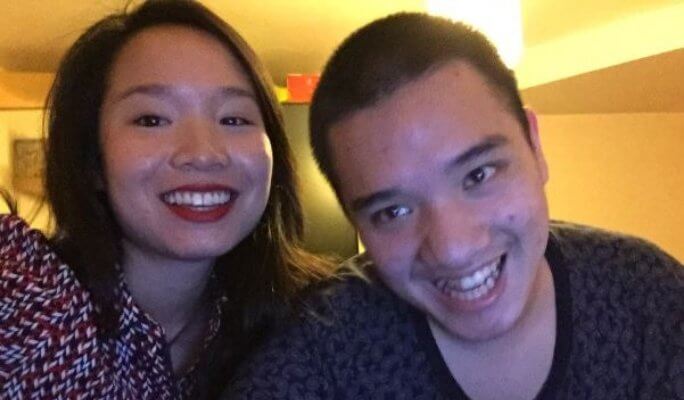
The relationship I have with my brother William is probably similar to any other sibling relationships, except when it isn’t. When you grow up with someone who cannot verbally communicate, you have to think outside of the box. When I was younger, I desperately wished I knew what William was thinking or what he wanted to tell me. It felt like everything I said to him was wasted effort. There were periods when I couldn’t understand why it felt like my parents put my brother first over everything. At times I resented it. However, with time, maturity and better understanding, it all made sense. It took a lot of reflection to realise how superhuman my parents were (and still are). I can’t help but feel a sense of guilt for having any feelings of resentment as a child. Every day I am grateful to them for being the glue that stuck us all together.
Having a non-verbal sibling
Some days are challenging; when William feels misunderstood, he cries - a lot. Sometimes for hours upon end. The combination of his wordlessness and my sense of hopelessness breaks my heart. In those moments, there is nothing I can do to make it better. Can you imagine how agonising it must be when you are the only person in the room who cannot express themselves verbally? This is William’s reality. On the one hand, when William feels misunderstood or upset, his tears and anguish are felt more deeply to me than any other person in my life. Equally, it makes perfect sense that when my brother is happy, the whole room can feel it. He has this ability to make everyone feel his love. His laugh is the most infectious and joyous laugh known to me.

As William turns 25 today, here are some of the things I have learnt from him:
- Patience . I believe I am able to persevere through difficult periods by letting time heal all; thanks to William.
- Empathy . Without a doubt, my empathetic nature stems from my brother. I pride myself in my ability to feel other people's emotions, no matter how big or small.
- Being a better communicator . Having to communicate beyond words, whether it's through dancing to Disney clips with William to sharing our love of eating chicken, I have learnt that there are other ways to communicate.
Living with William makes you realise the smallest joys in life are also the most important. When he randomly comes over to hug me, I feel most at home; for me, it is love at its purest form. Our unbreakable sibling bond is strengthened by being creative in our communication and the love that we have for one another.
I don’t remember the day when I found out William had autism, but I cannot recall a day without it. If he could read this, I would want him to know that he should continue to be the blessing and joy that he is to my family and to never ever change. Happy 25th birthday, not-so-little-bro.
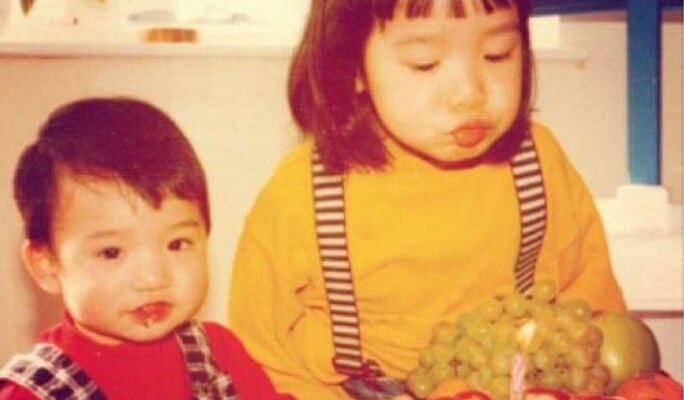
About Julia Thanh Julia Thanh was born and raised in London and has lived in Senegal and Vietnam. She has worked in International Education for five years and is currently a Community Lead for a leading tech school. Outside of work, she is passionate about empowering the British Vietnamese community. She also is a proud fundraiser for Ambitious about Autism where her brother William was a pupil during his teenage years.
Read more...
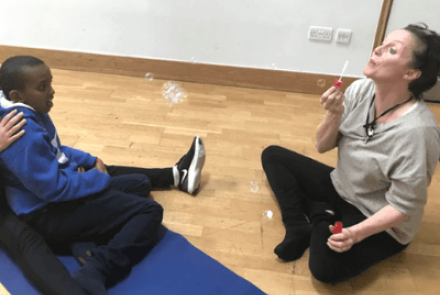
Yoga at TreeHouse School
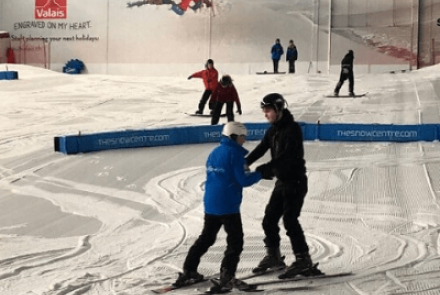
TreeHouse pupils hit the slopes
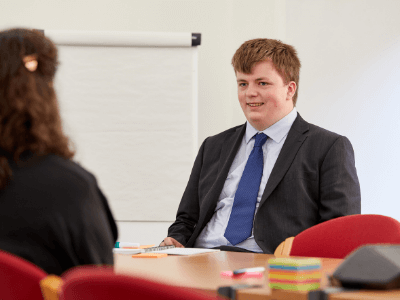
Are you a young person looking for work?

Check out our Instagram
Other blogs.

Join our Employ Autism network
Latest news on twitter.
- Skip to main content
- Keyboard shortcuts for audio player
Children's Health
Coping with an autistic brother: a teenager's take.

Eleven-year-old Andrew enters the Skillings' house after walking through mud, while his older sister, Marissa, looks on, worried he might have a meltdown. Courtesy of the Salt Institute/Erica Burkhart hide caption
Eleven-year-old Andrew enters the Skillings' house after walking through mud, while his older sister, Marissa, looks on, worried he might have a meltdown.
Each year, approximately one child in every 150 is diagnosed with autism. Eleven-year-old Andrew Skillings is one of those children. He has Asperger's syndrome, a mild form of autism.
For Andrew's older sister Marissa, her brother's diagnosis has affected every aspect of her life from the time he was born. She was almost 5 and shared a room with Andrew. Marissa says she remembers those first few weeks he was home.
"I decided he needed to go back where he came from, because as a baby he never, ever stopped screaming," she says.
Then the Skillings found out Andrew had a mental disability.
Recently, Marissa described what it's like to live with a little brother who has frequent meltdowns — and who she tries to protect.
"I'd kill for him. But I could kill him, too. He talks. Nonstop. Talking and talking," Marissa says. "He'll tell anybody information about an animal, whether they want to hear it or not. People can tell Andrew has a disability because of his hand gestures and the way he moves when he gets nervous.
"He moves his hands back and forth; and he'll walk with his hands down by his sides just shaking his hands; and he likes to crack his knuckles when he's nervous, and he'll keep doing the movement even if they don't crack."
As Marissa says, their sibling relationship is different from "two normal siblings" because of his autism.
"Because socially he needs help, so I have to protect him and be there for him more than a normal big sister would," she says. "He freaks out, like if I won't get out of the bathroom and I tell him to shut up, he'll grab a kitchen knife and come over to the door and open the door and chase me around the house with a knife. I know he'd never touch me with it, but when he's running with a knife pointed towards me and I'm running, if he tripped, then something bad could happen."
Marissa says she stays out with her friends until her curfew so she can avoid dealing with her brother's disability.
"I started staying away from home around 5 or 6," she says. "I'd stay outside or at a friend's as late as I could until my mom called me home. I can sit down and talk with my parents, but a lot of times, it's like Andrew's always trying to explain something about a cheetah or a jaguar or something in the jungle that has no importance on anyone's life. But if I interrupt him, he gets mad and then it turns into a tantrum and my mom gets mad, and I'm just like, 'I don't even want to talk to you guys anymore.' "
Marissa says she has seen kids tease Andrew, and it's not unusual at his age. One day, she says, a boy was throwing rocks at Andrew. Andrew tried to shield himself with cardboard, but a rock flew over the cardboard and hit him in the head. Andrew ran into the house crying, and when Marissa found out what happened, she chased the boy down the street and cornered him.
"I smacked him across the face and he was cornered, and my face I'm sure was beet-red, and I was like, 'Just do it again and I'll punch you right in your mouth,' " Marissa says. "I was mad because no one can beat up my brother except me."
"Sometimes, if I get really frustrated, I just wish I could change everything: Sell him to the zoo and buy new parents," Marissa says. "But then the times when I'm actually appreciating things and I'm not in the moment when I'm steaming mad, I do appreciate what I have."
"I don't think I'd change anything, 'cause this is my life and this is what I'm used to. Andrew wouldn't be like the Andrew I know and love if he was different, because autism is his whole personality."
Related NPR Stories
Diagnosis can miss adhd symptoms in girls, your health, drugs hint at potential reversal of autism, an autistic student's journey to college, how to avoid being bankrupted by autism, autism chronicles: single with an autistic child.

How to Bring Adult Siblings Into an Autistic Brother's Life
Finding tangible ways to support and connect in an adult autism family..
Posted November 29, 2021 | Reviewed by Jessica Schrader
- As autism parents age, they need to create and maintain supports for the autistic sibling beyond themselves.
- Autism parents must equally consider the needs of the non-autistic siblings when seeking their involvement with an autistic sibling.
- Concrete, specific ways of involving adult siblings in their autistic sibling's life can help avoid overwhelming them.
As an old autism mom, not much surprises me anymore. My three boys have grown up to be good men, hardworking in their careers, dedicated to their loved ones. Yet still, when their faces popped onto the Zoom screen the other day for my oldest son’s ISP (Individual Services Plan) meeting, it was hard for me not to cry.
We had invited Max and Ben to attend this annual goal-setting meeting for Nat, their autistic older brother, and they had accepted willingly. Taken it in their stride, really. My husband Ned and I had talked with them about this meeting months ago as part of a campaign to get them prepared and familiar with aspects of Nat’s care—they will be his guardians when we no longer can be. Yet seeing them there, sharing their time and screens with Nat’s team in such an open-hearted manner, was quite moving and momentous for me.
Not that anything unusual happened. It was a typical team meeting: positive energy, warmth, insightful suggestions. The staff who work with Nat reported on his progress with various aspects of his life like carrying out tasks, learning new skills, adapting to change, and socializing, and Ned and I jumping in to compare notes on the same. Max, Ben, and Nat all sat quietly watching. I watched them, wondering what each of them was thinking. I couldn’t tell, of course, because none of them give much away; in that regard, they are just like Ned and his family—private and thoughtful.
The unusual part was their presence because it was the first time this happened. My campaign to involve them in Nat’s life is only a few years old, because before now we never asked for much of their time when it came to Nat. We never wanted their lives to be about how to accommodate their older, disabled brother. All Ned and I had asked of them was kindness and patience, and to let us do the work of taking care of Nat. But as we got older, this did not feel like enough. And when the pandemic hit, and we took Nat out of his group home to live with us, our isolation threw the whole thing in high relief. When we talked to them every week or so, they seemed so far away, in the geographical distance as well as daily life concerns, that at last I understood on a visceral level how much we had kept Nat’s needs—daily and global—separate from theirs. I resolved to change this.
Change was not so easy, however. I wanted to bring them into Nat’s adult life and future, but not from a position of demand nor as a guilt trip. I wanted simply to talk to them about what might be coming in the next three decades, and how Nat and they fit together. And so, in the late spring, a newly-vaccinated Max visited us and we rode our bikes to the community gardens near Fenway Park. There, I broke the ice with him, talking to him about how we’d like to slowly bridge the gaps and help him and Ben be more comfortable learning about Nat’s life and what their roles could be. I told Max how important it was to me that Nat be included in family gatherings, holidays, vacations—even though Nat lives in Boston and Max is in Brooklyn. “I’m sure we can do that,” said Max, as we looked through chicken-wired fences and gasped at candy-like blossoming trees and nascent vegetable seedlings. “Oh, yeah, even if we have to bring him to New York and then bring him back, yeah, that’s doable,” Max said in his straightforward, easy manner.
Still, my heart stopped for the briefest of moments as I considered this even bigger miracle: witnessing one's child being a really good man. And Ben, who is much younger than Max and Nat, was equally open-hearted and willing to start thinking about the future; he even seemed relieved to hear my broad descriptions of what could be, and what his role might be. Maybe this was easier because it seemed so distant to them, such a long way off. Maybe it helped that we had specific ideas of what we do for Nat and how they could sustain them.
The answer is still not clear. I do not know what the rules are for safely expanding the roles of the adult siblings in their autistic brother's life. And while I can see is that it is not all on me to make it happen, it is definitely on me to keep asking for real, tangible support with specific goals in mind. Keeping it specific prevents things from overwhelming them. It allows them the space to consider things a problem at a time. And it gives me a true sense of being able to lean on them when I really need to.

Susan Senator is the author of numerous autism books; her writing has appeared in The New York Times, The Washington Post, among others.
- Find a Therapist
- Find a Treatment Center
- Find a Psychiatrist
- Find a Support Group
- Find Online Therapy
- United States
- Brooklyn, NY
- Chicago, IL
- Houston, TX
- Los Angeles, CA
- New York, NY
- Portland, OR
- San Diego, CA
- San Francisco, CA
- Seattle, WA
- Washington, DC
- Asperger's
- Bipolar Disorder
- Chronic Pain
- Eating Disorders
- Passive Aggression
- Personality
- Goal Setting
- Positive Psychology
- Stopping Smoking
- Low Sexual Desire
- Relationships
- Child Development
- Self Tests NEW
- Therapy Center
- Diagnosis Dictionary
- Types of Therapy

At any moment, someone’s aggravating behavior or our own bad luck can set us off on an emotional spiral that threatens to derail our entire day. Here’s how we can face our triggers with less reactivity so that we can get on with our lives.
- Emotional Intelligence
- Gaslighting
- Affective Forecasting
- Neuroscience
- Awareness Month
- Initiatives
- Tips / How To’s
- Entrepreneur
- Tell Your Story
- Development
Accepting and Overcoming My Brother’s Autism
When my brother Ethan was diagnosed with autism, I didn’t really know what to expect. I was about ten years old and at that age, I don’t think you can comprehend something like autism . Some people think it’s a brain disorder that’s genetically inherited, others classify it as an excuse for inadequate parents to not properly discipline their children. Regardless, I knew that this word now described why my brother had suddenly gone from a happy, typical-functioning infant, to a baby that basically just sat there, zoned out in his own little world.
Initially, I blamed myself. As his older brother, how could I not make things better for him? How could I not help him? Is it my fault? I ran over these questions a million times in my head and dealing with the guilt is still something I struggle with. I mean, how can I honestly live my life when he struggles every day? How is that fair?
Learning to accept it was one of the most challenging, yet simplest things I ever had to do. It was challenging because it meant accepting that he was going to struggle. It was simple because I knew that feeling sorry for myself wasn’t going to help. The only way to help was to act. The only way to act was to first accept. Not settle for autism, but simply accept that this was what life dealt my family. But that was okay, because we were going to push through it.
Shortly after Ethan’s diagnosis, I watched in awe as my mother (who has to be one of the bravest women I know) sucked it up and stood strong on her own two feet. She tore through book after book, conference after conference, searching for answers. It was her tenacity that inspired my own advocacy.
I saw Ethan and I saw other kids on the autism spectrum and I knew in my heart someone had to step up and begin doing something. So one day, at fifteen years old, I turned to my mother and told her we were going to host a baseball clinic. Two months later, we had a fundraiser that raised over $2,000 for autism research. Seeing the impact I could make at such a young age empowered me to keep going and eventually led to my first book and a series of other fundraisers that we began hosting throughout Southern California and eventually in other cities around the country.
But the purpose of writing this piece isn’t to brag about my accomplishments. Sometimes, I wish I could trade them for my brother’s health instead. But then I wonder if that’s too selfish of a wish. I look at my life and we are nothing short of truly blessed.
Ethan is twelve now and I am twenty-one. It’s been a journey, but he’s doing so much better. Things I wasn’t sure he was going to accomplish, he’s now pushing through.
He has taught me so much. How to be patient and appreciate the small things. His own special needs have taught me about our environment, which has started to scare the hell out of me! The earth we live on is not as safe as it used to be and we are at fault. Ethan has taught me how to take action for causes like this. And now, I want to share our story . Not merely for the sake of drawing attention in our direction, but to show people that with a little motivation (and a whole lot of heart) miracles happens. We can accomplish things we never could have imagined. Here I am, at twenty one years old, at the launch of my fourth book, A Shot of Hope . I was a kid that couldn’t write an essay and get a passing grade. I saw my brother’s autism and thought it was hopeless. Now, here I am working hard with my mother every day at helping him overcome his special needs. It’s been a process, but it’s coming along. And he’s flourishing! We couldn’t be any prouder. (Even during the most difficult days.)
Giving back is one of the most important things a person can do. It’s not possible to live a meaningful life selfishly. Believing in yourself is the key to unlocking that door. You have to believe in your potential, kick that door open, and run! And the end result is far beyond anything you can ever imagine. Whether it’s taking a social action, raising a child with special needs, or overcoming the obstacles life’s thrown your way — anything is possible!
Image: Zack Peter
Learn + Connect Learn more about Zack Peter Connect via Facebook and Twitter
From the Editor At Conscious, we are inspired by remarkable people, and so we set out to tell stories that highlight real human interactions and human dignity. You can read more stories like this when you pick up your copy of Conscious Magazine. Subscribe today via our Conscious Shop and subscribe to Conscious Updates .
Zack Peter | @justplainzack
You Might Also Like
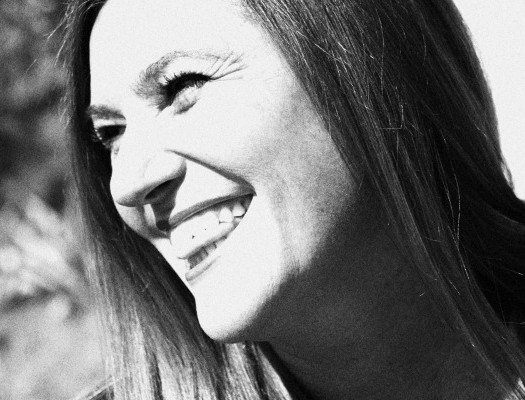
From Corporate Job To Grief Recovery Specialist
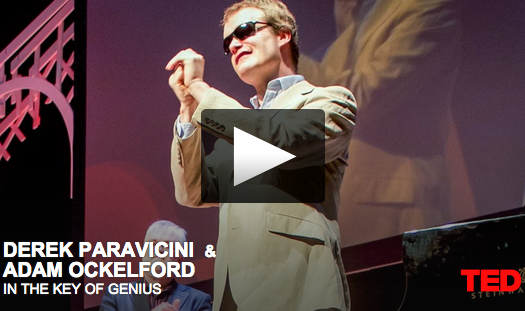
Conscious Weekend: Explore Musical Genius [Video]
Get conscious+.

Created to be a personal knowledge guide, Conscious+ is a collective of content, connections, resources, and perks — all exclusive and delivered to your email inbox monthly. Sign-up Today!
Conscious Conversations | Listen Today
Tap into Your Everyday Power and Create the Future
Facebook | Twitter | Instagram | LinkedIn
Sign-up for The Collective
Sign-Up Today Meet the Coaches Conscious Guides
© 2024 Conscious Magazine LLC. All Rights Reserved. The material on this site may not be reproduced, distributed, transmitted, cached or otherwise used, except with prior written permission of Conscious Magazine LLC
Home — Application Essay — National Universities — The Orbital Force of my Autistic Brother: College Admission Essay Sample
The Orbital Force of my Autistic Brother: College Admission Essay Sample
- University: University of Delaware
About this sample

Words: 646 |
Published: Jul 18, 2018
Words: 646 | Pages: 2 | 4 min read
I am holding my brother's hand."Hi, Will," I say."Hi," he mutters curtly, a trained reply.
Say no to plagiarism.
Get a tailor-made essay on
'Why Violent Video Games Shouldn't Be Banned'?
It's better than the less favorable option of "Goodbye, please" or "I want goodbye."
His palm feels like a living creature itself, warm and squirming. When he looks past the line of trees, I'm watching his face for signs of recognition, peering into the reflection in his pupils. I want to know what he sees, but his gaze is smooth asphalt roads to nowhere, black tar poured inside brilliant green irises. I wonder if he is floating inside that blackness, endlessly disconnected. I squeeze his palm, and he says nothing.
It is an unseasonably warm day in autumn. On the way to the park, he stares out the window at the mess of color: red burning into orange, orange flirting with smears of yellow, deep brown branches forking into patches of sky. He laughs at absolutely nothing. I am happy to give this to moment to him, even if it does not really belong to me.
My mother parks the car outside the park, a small little plot of land encased in a chain link fence. This is a departure from Will's normal routine when we visit him, which is unreasonably nerve-racking. He is a wild card, a train drifting and trembling on the edge of the tracks; it is impossible to say how this trip will affect him. I risk a glance to the backseat, and he stares back at me, for once ungrudging.
Blissfully, the park is nearly empty. A handful of kids play basketball on a court several hundred yards away. They watch us for a moment, perhaps pondering the strange sight of a fourteen year old playing in a park. My brother runs across the grass, flapping his arms. I wonder if he feels the wind caught between his fingertips; I wonder if he can taste his euphoria in his throat.
I watch him from the swings, my feet grazing the wood chips as I sway back and forth. He stands at the edge of the fence, tossing sticks over the top. I watch as he methodically picks up each twig, inspecting it as if one is more worthy of being thrown than any other. I glance at my mother, wondering if I should intervene. "He's okay," she assures me, but our eyes don't leave him.
About an hour later, we're about to leave when he stops in his tracks. His eyes catch the light tumbling through the branches of an old oak tree."What is it?" I ask."Help," he replies.
I shake my head.
I'm about to object, but it doesn't matter because he is already reaching, pulling himself onto the lowest branch. He leaves me no choice but to place my hands under his legs and support him as he scrambles up, grasping at fistfuls of leaves. This proves to be significantly more difficult than when he was six years old.
"Come on, Will," I groan, and when he laughs, it's almost in spite of me, in spite of this entire scenario.
Will shifts so that his back is against the trunk, and his gangly legs curl around a thick branch. He turns his face into the sun, singing a tuneless song."What do you say?" I prompt, poking his belly. He swats my hand away, but replies: "Thank you."
I roll my eyes. "You're welcome."
When we drive back to his residential home, I watch him with his eyes on the world.
And there I am, and there I will always be, caught in Willie's impossible orbit. I realize, then, that my brother is not a puzzle, nor does he miss any pieces of himself.
Keep in mind: This is only a sample.
Get a custom paper now from our expert writers.
He is the sum of his parts. He is a mystery, a story with a million endings. And he is complete.
Cite this Essay
Let us write you an essay from scratch
- 450+ experts on 30 subjects ready to help
- Custom essay delivered in as few as 3 hours
Get high-quality help

Prof. Kifaru
Verified writer
- Expert in: National Universities

+ 126 experts online
By clicking “Check Writers’ Offers”, you agree to our terms of service and privacy policy . We’ll occasionally send you promo and account related email
No need to pay just yet!
Remember! This is just a sample.
You can get your custom paper by one of our expert writers.
121 writers online

Are you interested in getting a customized paper?
Still can’t find what you need?
Browse our vast selection of original essay samples, each expertly formatted and styled
Related Essays on National Universities
"Wealth without virtue is no harmless neighbor." -Sappho How businesses and corporations balance the virtue of giving back and profit-seeking is one of my greatest fascinations. For example, the American company Tom's donates [...]
An average fifteen year old, I was selfish, ungrateful, and convinced that the world was against me. My unproductive summer was passing by as usual, until a friend of mine invited me to travel to Paraguay with her for an [...]
Admissions Board: In order to convey as much information as possible to you, I have written an essay that will help give an idea about what I am interested in, how I serve my peers and community, and the types of experiences [...]
During my summers, I passionately pursued humanitarian endeavors to alleviate suffering, learn about the medical field and fortify my Catholic values. In the summer of 2015, I began devoting more time to working in low-income [...]
Lists are my forte. To-do lists, shopping lists, top ten lists, BuzzFeed lists; just name a list and I have a detailed version doodled on my planner. My list-making habit originated at an early age, around the same time I [...]
As our annual family picture day approaches, disputes about matching attire, scenery, or whether or not our pets will be included continue to dominate our dinnertime discussions. I’m not keen on, nor do I oppose, this occasion. [...]
Related Topics
By clicking “Send”, you agree to our Terms of service and Privacy statement . We will occasionally send you account related emails.
Where do you want us to send this sample?
By clicking “Continue”, you agree to our terms of service and privacy policy.
Be careful. This essay is not unique
This essay was donated by a student and is likely to have been used and submitted before
Download this Sample
Free samples may contain mistakes and not unique parts
Sorry, we could not paraphrase this essay. Our professional writers can rewrite it and get you a unique paper.
Please check your inbox.
We can write you a custom essay that will follow your exact instructions and meet the deadlines. Let's fix your grades together!
We use cookies to personalyze your web-site experience. By continuing we’ll assume you board with our cookie policy .
- Instructions Followed To The Letter
- Deadlines Met At Every Stage
- Unique And Plagiarism Free

COMMENTS
Casey, left, the author, right. Being away from Casey after growing up with him for almost 20 years is difficult. I worry about him, and sometimes, the worry clouds the way I see him. The way I ...
20. It's not uncommon for brothers and sisters of autistic people to find themselves as part of an invisible majority, in view of our invisible disability. With siblings on the spectrum usually requiring the lion's share of attention, brothers and sisters of autistic people can report feeling withdrawn and isolated (whilst, in contrast, 58% ...
Autism in the family is a struggle, but it doesn't make us any less human. In fact, our struggle strengthens us in ways mostly nobody else can understand. When I decided to write this blog about growing up with my brother, Jack, I knew it wasn't going to be easy. It's a topic I don't like to dwell on because it forces me to be brutally ...
My brother has autism. I have had a unique life. I grew up with a little brother whose needs were always more important than mine. Acceptance took longer than I wanted it to… strange looks when Pat acted out in public, the uncomfortable look on my friends' faces when I decided (after months of internal debate) I would invite them over to ...
What I Learned from my Autistic Brother. November 14, 2009. By lilmonstarr BRONZE, Oakton, Virginia. More by this author. When I was young, I knew my brother was different. It didn't seem ...
Carol Scherling/THE REVIEW. Senior reporter Laura Matusheski reflects on having a sibling with autism. BY LAURA MATUSHESKI. Senior Reporter. He is 25 years old. He cannot talk. He makes mumbling sounds and points to get your attention. He cannot hold anything resembling a normal conversation. He lives by routine and repeats the same words and ...
Autism aside, family attitudes and situations can have a huge impact on children. Add autism into the mix, and ordinary family conflicts, challenges, strengths, and flexibility become a very big deal. For a neurotypically developing sibling, parents' behaviors and emotions can become a source of positivity and strength—or not. For example:
As William turns 25 today, here are some of the things I have learnt from him: Patience. I believe I am able to persevere through difficult periods by letting time heal all; thanks to William. Empathy. Without a doubt, my empathetic nature stems from my brother. I pride myself in my ability to feel other people's emotions, no matter how big or ...
A SIBLING'S GUIDE TO AUTISM 4 Some things you may be having trouble with: Understanding why your brother or sister acts in what seems to you to be strange ways. Feeling like your brother or sister gets more time and attention from your parents than you do.
Essay: "Open, When?" Helping My Autistic Brother Through Uncertain Times ... Living in isolation has been tough on all of us, but to people like my "different" older brother, it can be especially lonely. A big, intense guy who's never held a job or lived on his own, he needs things to be definite, predictable. Like the average 8-year ...
Eleven-year-old Andrew Skillings is one of those children. He has Asperger's syndrome, a mild form of autism. For Andrew's older sister Marissa, her brother's diagnosis has affected every aspect ...
We had invited Max and Ben to attend this annual goal-setting meeting for Nat, their autistic older brother, and they had accepted willingly. Taken it in their stride, really. My husband Ned and I ...
Autism spectrum disorder is a brain development disorder that affects how a person perceives and socializes with others. Having autism can result in difficulties with social interaction and communication. There is a wide range of symptoms as well as severity of the disorder. There is Level 1 ASD, where the severity of the disorder isn't too high.
Here I am, at twenty one years old, at the launch of my fourth book, A Shot of Hope. I was a kid that couldn't write an essay and get a passing grade. I saw my brother's autism and thought it was hopeless. Now, here I am working hard with my mother every day at helping him overcome his special needs. It's been a process, but it's coming ...
My Family: My Autistic Brother Essay. As a child, I often avoided confrontation by keeping my opinions to myself, no matter how offensive someone was. But when someone directed negative comments toward my autistic brother who could not defend himself, I lost my self-control. Witnessing the struggles Bo has gone through, I feel it is cruel and ...
"My Life With Autism" is a 19-year-old boy's firsthand account of life with autism; "'My Brother Has Autism'" follows the standard form of a Q&A. Language Conventionality and Clarity Vocabulary: higher academic and domain-specific vocabulary (e.g., developmental, integrated,physical therapists) Figurative language: simile
Josh Stehle. 4.80. 10 ratings3 reviews. A moving story about how autism and a shared appreciation for superheroes brought two brothers together. Author Josh Stehle learned everything he knows about superheroes from his older brother and best friend, Zach. From the worlds they live in, to the writers who created them, and studios who produced ...
Read an admission essay sample, "The Orbital Force of my Autistic Brother: College Admission Essay Sample", with 646 words. Get ideas for your college application essay.
Kim is also the author of "Raising Autism: Surviving the Early Years." Justin comes barreling out of the house onto our patio with sitter in tow, and I turn in time to see Zach follow his unerring path toward the pretzels, then watch him swivel back to his friend. "That's my big brother Justin" he says. He continues with "He has autism.
What I Learned from my Autistic Brother. When I was young, I knew my brother was different. It didn't seem important to me until some of my friends asked, "What's wrong with him?". At first I didn't understand what they meant because I didn't think there was something "wrong" with him. I asked my parents, and they told me that ...
My Family: My Autistic Brother Essay. 858 Words; 4 Pages; My Family: My Autistic Brother Essay. As a child, I often avoided confrontation by keeping my opinions to myself, no matter how offensive someone was. But when someone directed negative comments toward my autistic brother who could not defend himself, I lost my self-control. ...
I have an autistic sibling (whom I love to death). I mentioned this three times throughout my application: first in my common app essay, second as a reason as to why I want to study genetics in a supplemental essay, and third in the COVID-19 essay. In all three cases, I used around 6-10 words and my sibling wasn't at all a major part of any of ...
taylorm898 • 2 yr. ago. i would avoid it since it's 1) more about him than you, and 2) it might come off as insensitive. if you feel that your experience is an absolutely pivotal part of you and you must write an essay about it, focus primarily on what you've gained rather than framing it as "i hated growing up with an autistic brother." 6.